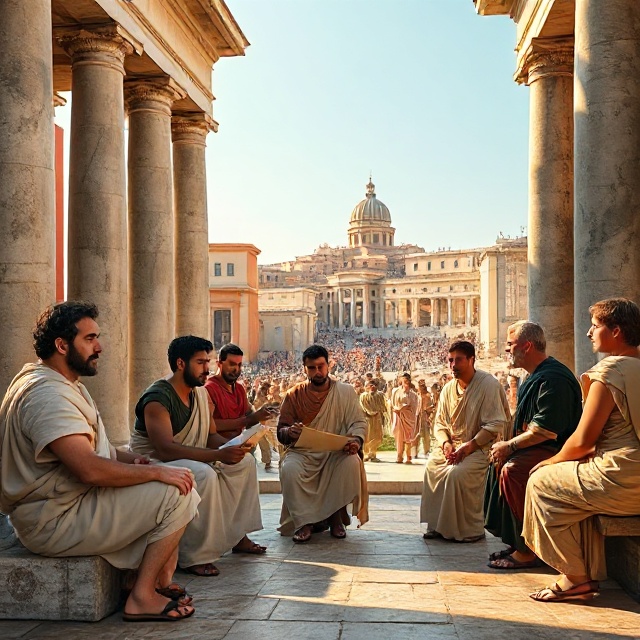
Table of Contents
Introduction: Stoicism’s Journey into the Heart of Rome
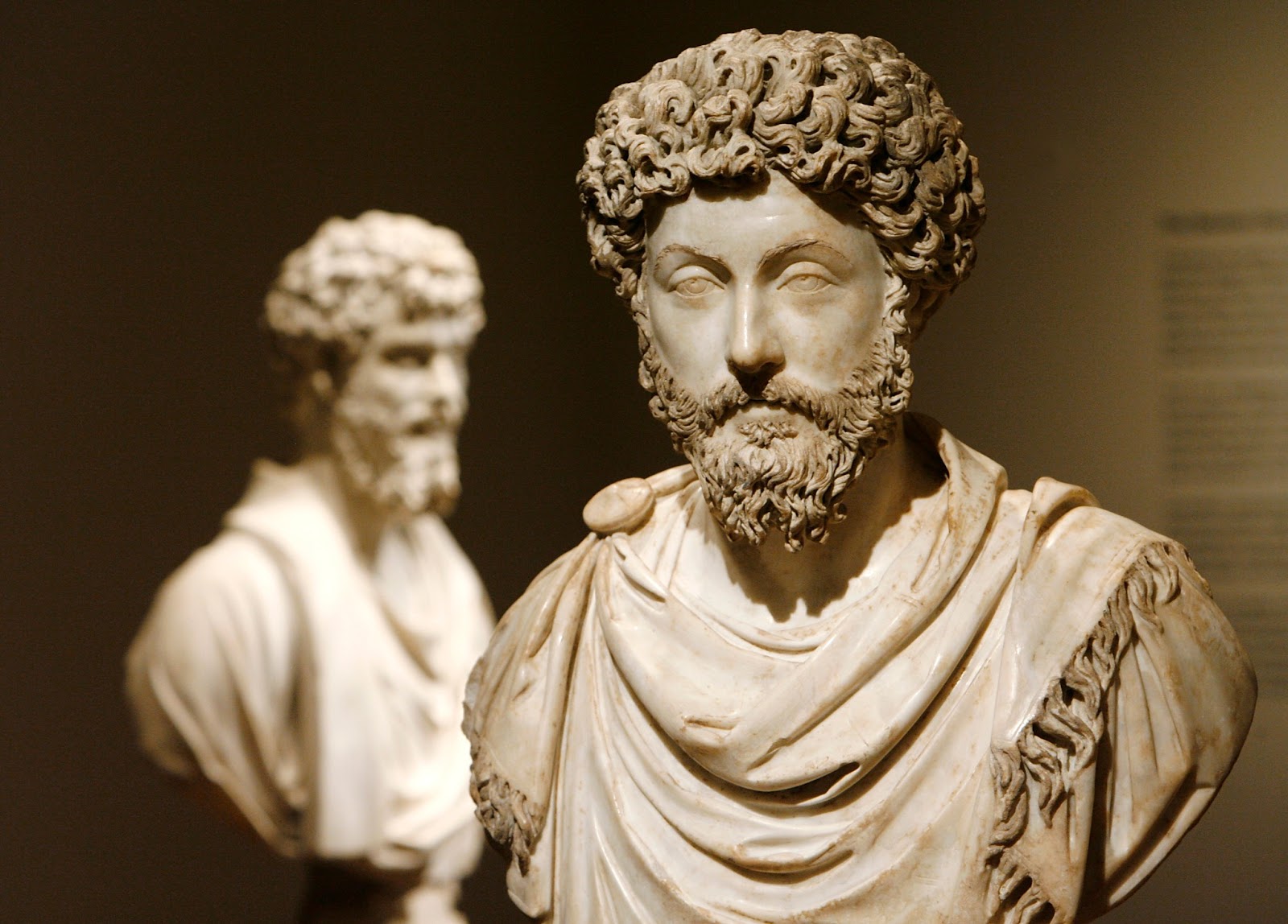
Stoicism, a Hellenistic philosophy founded by Zeno of Citium in Athens around 300 BCE, emphasized virtue, reason, and living in harmony with nature. While it originated in Greece, Stoicism found a fertile ground in Rome, resonating with Roman ideals of duty, honor, and rational governance. This article delves into how Stoicism rose to prominence in Rome, its integration into Roman society, its eventual decline, and its lasting influence on Western thought.
I. Stoicism’s Origins and Its Arrival in Rome
Key Stoic Ideas:
- Logos: The universe is governed by a rational principle, the logos, which imbues all things with purpose and order.
- Virtue as the Highest Good: True happiness is achieved through wisdom, courage, justice, and temperance, not through external possessions or status.
- Emotional Resilience: Emotions arise from false judgments; by aligning our perceptions with reason, we can attain tranquility.
- Focus on What We Can Control: While we cannot control external events, we can control our responses and attitudes toward them.
The Middle Stoa, particularly philosophers like Panaetius and Poseidonius, played a pivotal role in introducing Stoicism to Rome. Panaetius organized a Stoic school in Rome before returning to Athens, and Poseidonius emphasized the religious aspects of the doctrine, making it more palatable to Roman sensibilities .Encyclopedia Britannica
II. The Rise of Stoicism in Roman Society
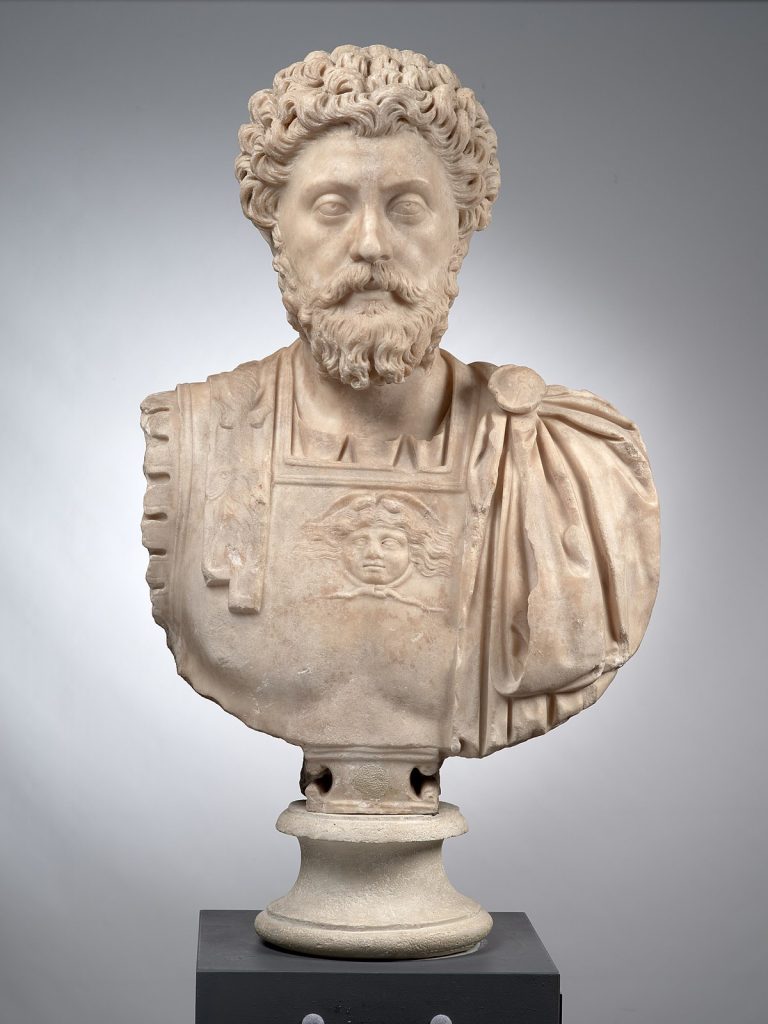
Early Roman Stoics:
- Cato the Younger (95–46 BCE): A staunch Stoic, Cato embodied Roman virtues and opposed Julius Caesar’s rise, viewing his actions as a threat to the Republic’s integrity.
- Seneca the Younger (4 BCE – 65 CE): As a statesman and advisor to Emperor Nero, Seneca’s writings, including his letters and essays, made Stoicism accessible to a broader audience, emphasizing practical ethics and emotional resilience.
- Epictetus (50–135 CE): Born a slave, Epictetus taught that true freedom comes from mastering one’s own mind, not external circumstances. His teachings, preserved by his student Arrian, focus on personal responsibility and inner peace.
- Marcus Aurelius (121–180 CE): The philosopher-emperor, Marcus Aurelius, authored Meditations, a series of personal writings reflecting on Stoic principles, leadership, and the nature of existence.
III. Stoicism’s Golden Age: Influence and Practice
During the 1st and 2nd centuries CE, Stoicism permeated various facets of Roman life, from politics to personal conduct. Roman Stoics viewed themselves as part of a larger cosmic order, with a duty to act ethically within society.
Virtues in Practice:
- Wisdom: Understanding the nature of the world and making rational decisions.
- Courage: Facing adversity and death without fear.
- Justice: Acting fairly and fulfilling social duties.
- Temperance: Exercising self-control and moderation.
Marcus Aurelius’s Meditations reveals the Stoic struggle to live authentically and responsibly amid the burdens of power and war. Seneca’s letters to Lucilius offer guidance on overcoming grief, anger, and anxiety through reasoned reflection.
IV. Why Did Stoicism Decline?
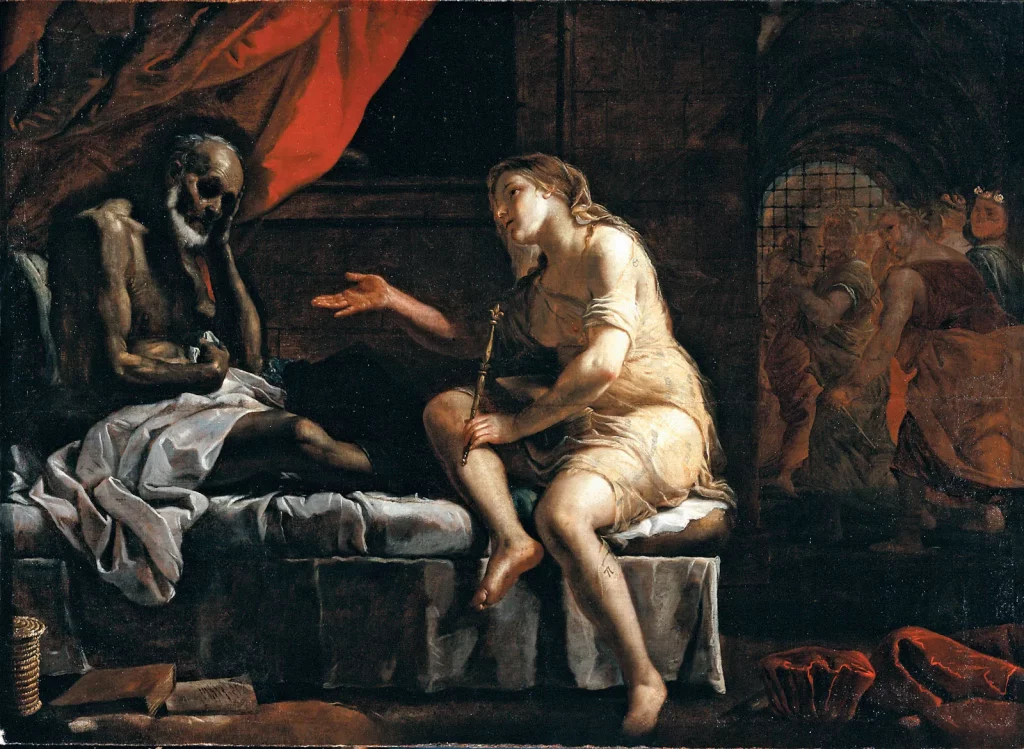
Despite its widespread influence, Stoicism’s dominance in Roman thought began to wane by the 3rd and 4th centuries CE.
Factors Behind the Decline:
- The Rise of Christianity: Christianity offered a personal, emotional, and salvific relationship with God, contrasting with Stoicism’s impersonal logos and emphasis on rational self-mastery. As Christianity gained imperial support under Constantine and Theodosius, it overshadowed pagan philosophies.
- Philosophical Competition: Neoplatonism and other mystical traditions became more popular. These schools emphasized metaphysics, the soul’s ascent, and mystical union, appealing to the spiritual needs of an empire in crisis.
- Changing Political and Social Contexts: The Roman Empire faced internal instability, economic troubles, and invasions, which made Stoicism’s emphasis on individual virtue seem insufficient to address collective crises.
- Stoicism’s Perceived Rigidity: Stoicism’s ideal of emotional detachment was sometimes criticized as cold or unfeeling. In contrast, Christianity’s compassion and hope offered comfort.
V. Stoicism’s Enduring Legacy
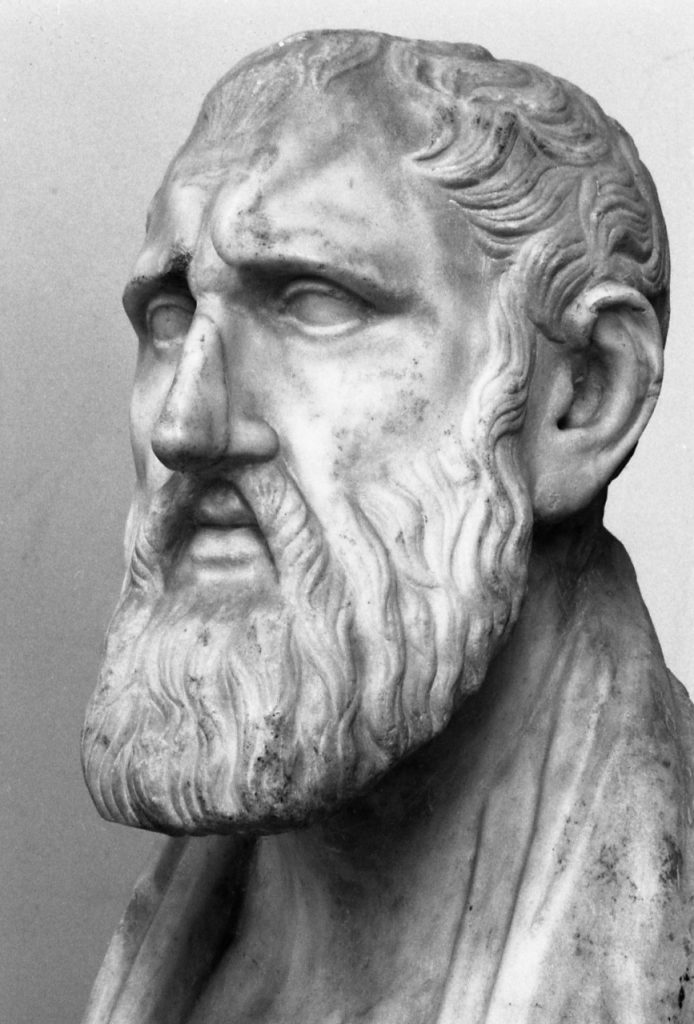
Though it lost prominence, Stoicism never vanished. Its core teachings have resonated across time, inspiring various cultural and intellectual movements.learnancientrome.com
Revival and Influence:
- Renaissance Thinkers: Philosophers like Michel de Montaigne revisited Stoic ideas, integrating them into humanist thought.
- Enlightenment Philosophers: Figures such as Immanuel Kant admired Stoicism’s emphasis on reason and moral duty.
- Modern Psychology: Cognitive-behavioral therapy (CBT) draws heavily on Stoic concepts of controlling thoughts and emotions.
- Contemporary Movements: Self-help and mindfulness movements echo Stoic practices of focus, resilience, and acceptance.
Marcus Aurelius remains one of the most widely read Stoic thinkers, and Seneca’s letters continue to inspire readers seeking practical wisdom.
Conclusion: Stoicism’s Place in History
Stoicism’s journey from Athens to Rome and its eventual decline illustrates how philosophy interacts with culture, politics, and spiritual needs. While Stoicism provided powerful tools for personal ethics and leadership during Rome’s golden age, shifts in religious beliefs and societal challenges changed the intellectual landscape.
Today, Stoicism offers timeless lessons on resilience, virtue, and living in harmony with reason—a philosophy for both ancient rulers and modern seekers alike.
TL;DR Summary:
Stoicism began in Athens but flourished in Rome, shaping leaders like Seneca and Marcus Aurelius. It emphasized virtue, reason, and emotional resilience. The rise of Christianity and changing political realities led to its decline, but its principles continue to influence modern thought and practice.
Note: For further reading on the influence of Stoicism in Ancient Rome, consider exploring resources like The Influence of Stoicism in Ancient Rome – Of One Tree and How Stoicism Influenced Roman Society: The Enduring Impact of a Philosophical Movement.Stoic Mentality+1
